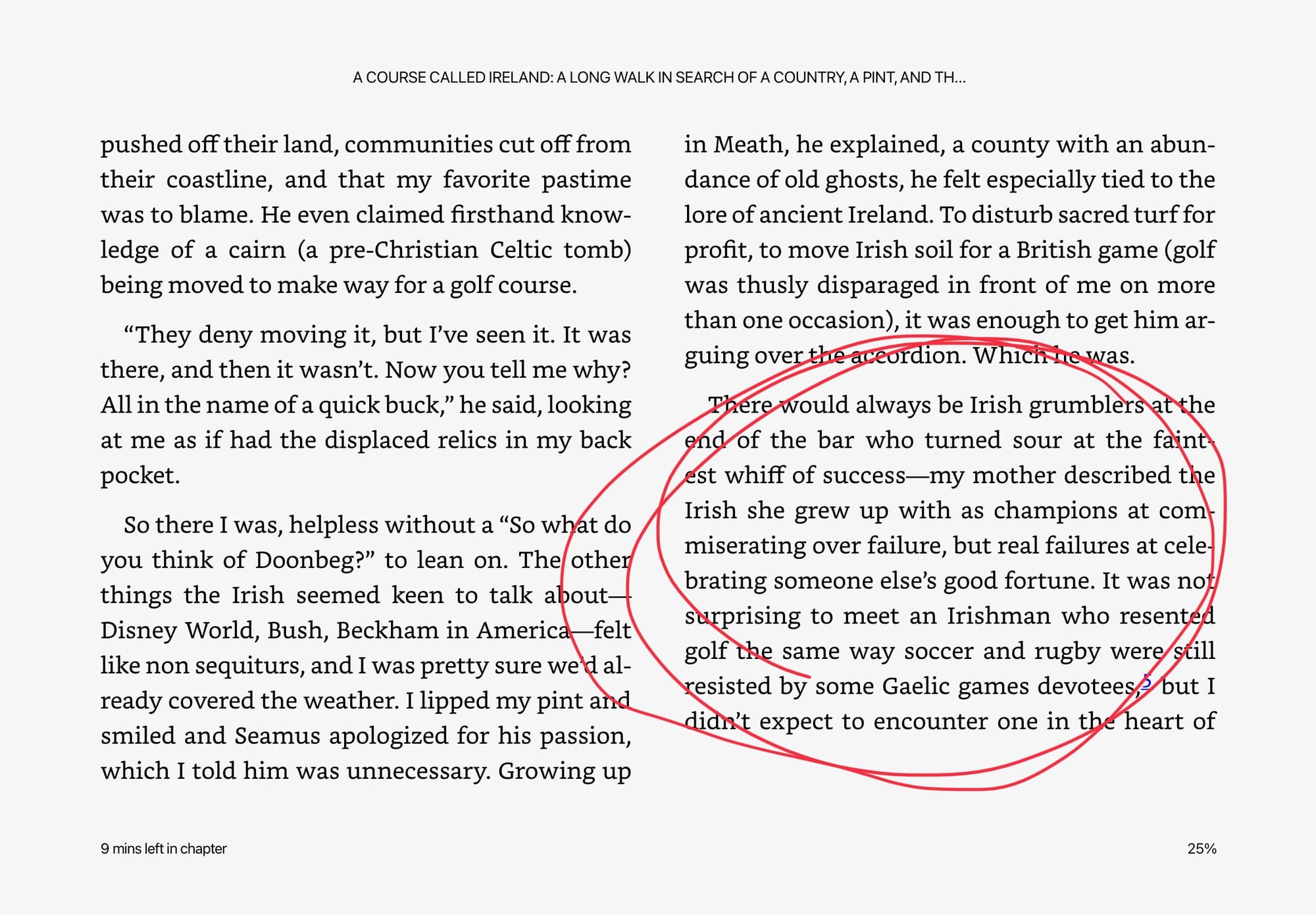"Cheer for the wins even when they're not yours" - Futurist Jim Carroll

I'm Canadian.
And there's a phrase—or maybe more of a vibe—that's familiar to just about anyone in this country who's achieved some level of success:
"Don’t get too big for your britches."
The reason I bring this up, of course, is because I was reading a book called "A Course Called Ireland: A Long Walk in Search of a Country, a Pint, and the Next Tee." It's a wonderful story of a fellow who decided to walk through all of Ireland, to golf. Walking, from one course to another. Without a car or any other form of transport.
I digress.
While reading the book, I came across this passage:
"There would always be Irish grumblers at the end of the bar who turned sour at the faint whiff of success -my mother described the Irish she grew up with as champions at commiserating over failure, but real failures at celebrating someone else's good fortune."

Whoah. You can tell it caught my attention and got me thinking.
Back to Canada. It’s the unspoken rule in so many corners of Canadian life that you can stand out, but not too much. Succeed, but don’t talk about it. Be proud, but stay humble. It’s part humility, part politeness, and part something else: a cultural reflex to keep things “even.”
Ask any Canadian who’s built something big, chased a bold dream, or landed in the spotlight. There’s often a quiet pushback. A little side-eye. A subtle signal that maybe they should tone it down.
So is this mindset a unique form of Canadian bitterness.? Hard to say. It’s more like an inherited caution. But it might be one reason why Canada is known globally as an innovation laggard. A mindset can stifle ambition. It can train us to downplay wins instead of celebrating them. To keep others small so we stay comfortable. This is an interesting mindset, given that in these unique global economic circumstances, Canada is finding itself in a situation in which the nation needs to think big and bold, be aggressively innovative, and celebrate those who are willing to go the extra mile of success to see the country succeed.
Could we be failures even before we succeed because as a nation, we don't like success?
All of this goes right to the core of the quote in the book above. Maybe it's our inherited Irishness! This whole thing got me thinking - why do so many people struggle to celebrate the success of others? In that context, it's said that right now, we are living through the politics of resentment. Why is that?
The reason some people turn sour at the first sign of someone else’s success is cultural, psychological, or even neurological. In many communities, especially those shaped by hardship or tight-knit collectivist values, success can be seen as stepping outside the tribe. ChatGPT tells me that this is common to Ireland, Canada, and Australia, countries that have witnessed a widespread social struggle. With that, the culture becomes one in which you’re not supposed to rise too far above. And if you do, someone will be there to cut you down.
Psychologists call this tall poppy syndrome. That's the tendency to resent or diminish people who stand out. It shows up in places where humility is valued over ambition, and where shared struggle becomes a bonding mechanism. Think of it this way: in a group that’s used to commiserating over failure, success becomes an awkward disruption. If everyone’s quietly suffering, your win can feel like a betrayal.
Science backs it up - it's said that we all instinctively measure ourselves against others, and we get pissed off - resentful - when we don't measure up. That means if someone else’s success triggers our insecurity, it’s easier to criticize than to cheer. Studies even show that envy activates pain centers in the brain—while schadenfreude, the pleasure we feel at someone else’s downfall, lights up the brain’s reward system.
But here’s the truth: celebration is expansive. It invites growth. When we learn to genuinely cheer for someone else’s win, we chip away at our limitations. So the next time someone near you wins big, don’t retreat into silence or sarcasm.
Clap. Smile. Let it inspire you. Their rise doesn’t diminish yours - think of it as lighting the path for your success.
So flip things around. Be among the ones who clap. Who cheer! Who says, “Look at them go!” instead of “Who do they think they are?”
Because success doesn’t divide us. It expands what’s possible for all of us.
Futurist Jim Carroll has enjoyed great success for more than 25 years outside his home country of Canada, and has been that ‘tall poppy.’

